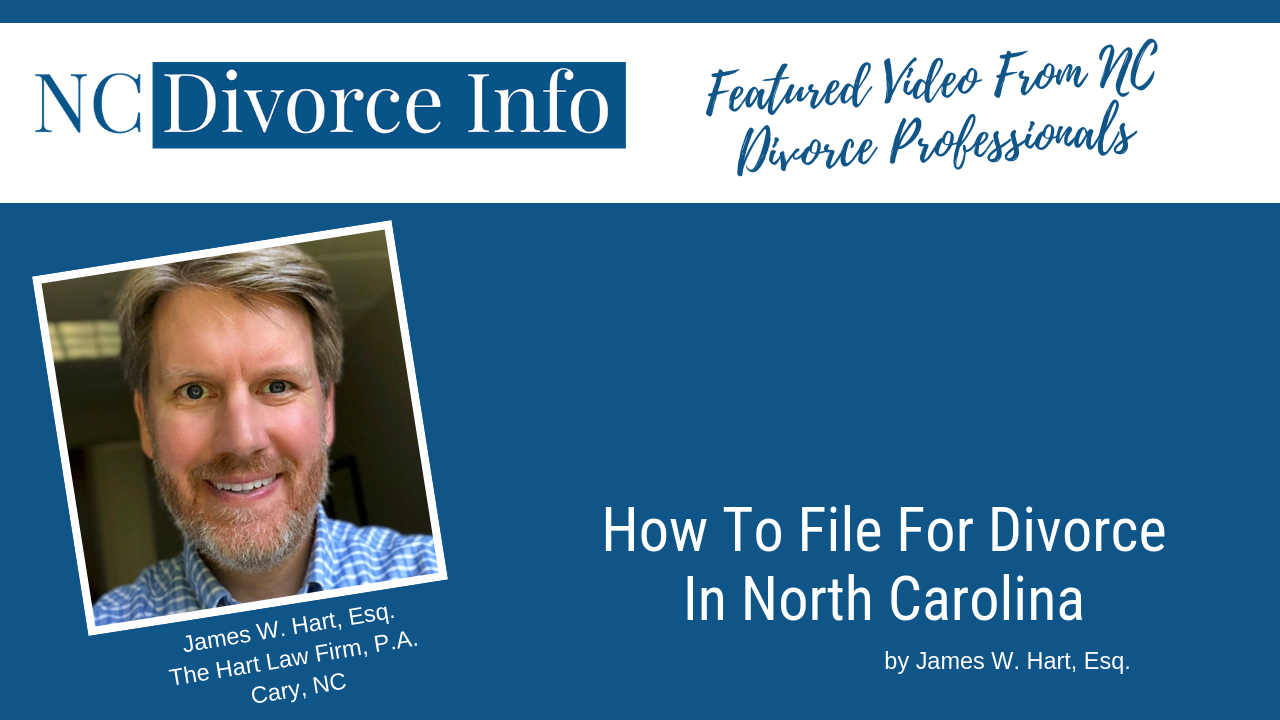How To File For Divorce In North Carolina
When you ask an attorney how to file for divorce they will assume that you are asking what pleadings need to be filed and how the legal process works in order to have a judge issue a divorce judgment after you’ve been separated for a year. If that’s what you want to know, then here is a description of that NC divorce process.
If you are getting ready to or have recently separated from your spouse and you are wanting more information about the legal process for getting divorced, then you’re probably not looking for how to file pleadings in a divorce action. You’re wondering how, as a practical matter, do you get divorced in North Carolina.
We hope this site will help you answer that question in a way that’s understandable and less confusing than the many attorney sites that set out to explain the domestic-relations laws in North Carolina. This is a site for non-attorneys.
IMPORTANT
In North Carolina, getting divorced depends on being separated for a year. Separation means living in separate residences with at least one spouse intending that the separation is permanent, and that it’s not uninterrupted by moving back in together for any significant period of time during the one year. At the end of the year of separation, either spouse can “file for divorce” and the divorce will be granted.
Issues To Be Decided
But most couples have to decide a lot of things before they’re ready to file for divorce. Couples with minor children have to decide how they’re going to parent from two homes. They must decide the schedule for who’s responsible for the children and when the children will be with them or with the other parent. They must consider how will they share the expenses for the children.
Couples also have to decide how to divide up the things they’ve accumulated during the years of marriage. Retirement accounts, a home, vacation homes, investment properties, savings, business interests, and anything else that’s been acquired during the marriage must go to one or the other spouse or be divided.
When one spouse is considered “dependent” because the spouse cannot cover his or her own expenses, and the other spouse in considered “supporting” because that spouse has the financial capacity to help, then the couple must consider how much income will be reallocated. This income reallocation, called alimony, allows the dependent spouse to be able to manage his or her cash flow and meet the expenses in his or her home.
The courts will decide these things for you, if you and your spouse are not able to do it.

Options
More and more couples in NC are opting out of the court process, however. These couples have several options.
One option is to hire attorneys who will take your case to court if settlement fails, but who will first try to negotiate a settlement with your spouse’s attorney in a mediation process.
Another, relatively new option, is a collaborative divorce process. Attorneys are hired by each spouse, and these attorneys commit to keep you out of court if at all possible. They agree to help you resolve conflicts in a win-win, problem-solving negotiation model, instead of the more traditional win-lose, haggling model, and they make a binding promise never to represent either one of you against the other in a courtroom. If for some reason, either spouse decides to go to court, then different attorneys are brought in to take over and take matters to court.